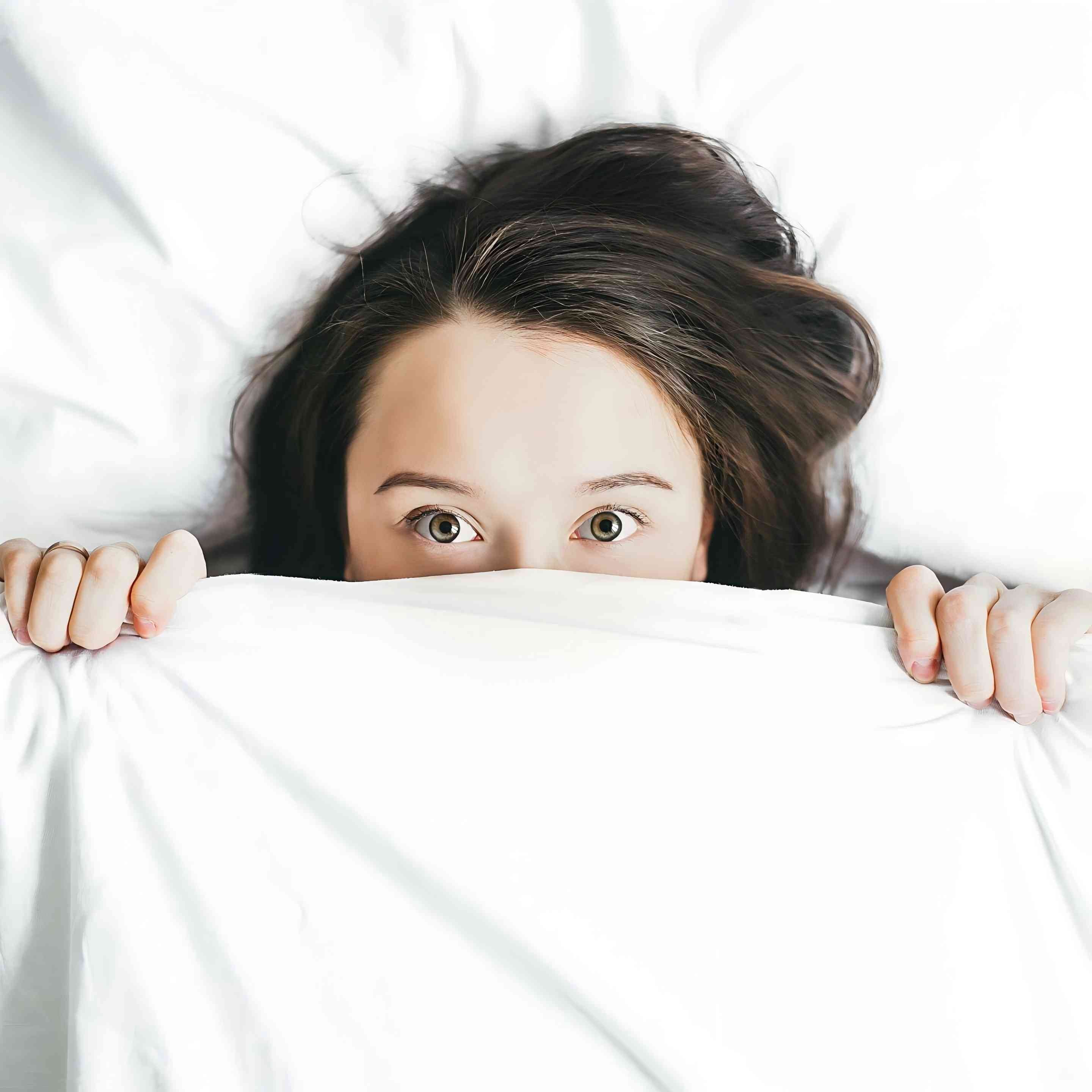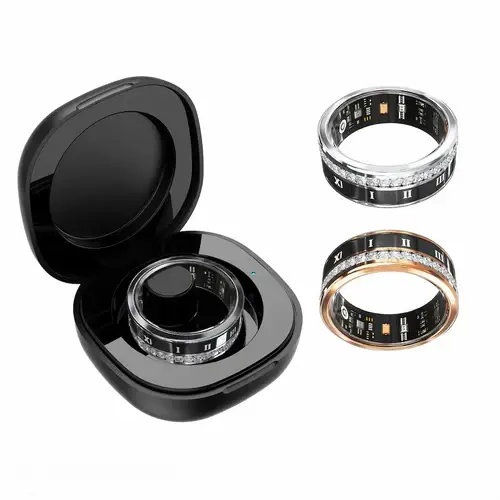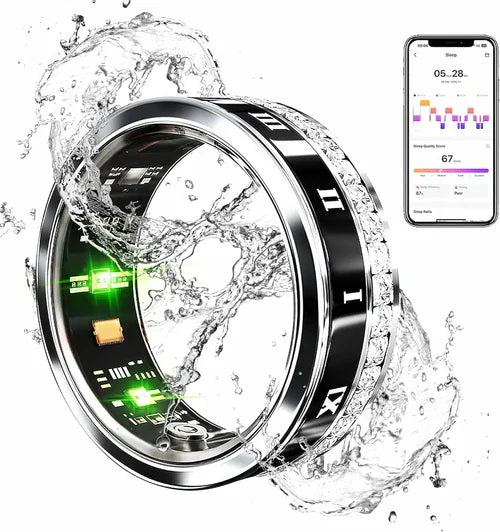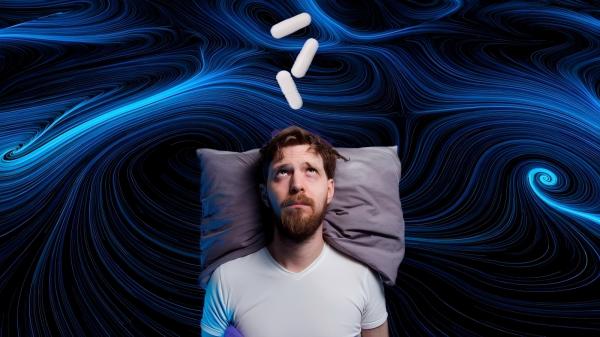
The Truth About Smartwatches and Sleep: What You Need to Know
Do you lose sleep because of your smartwatch? Well, that would not be anything new. With the way these wearable devices go, the question is whether they really are beneficial for better sleep by their means such as sleep tracking.
This in-depth research will reveal the effect of smartwatches on sleep tracking along with other aspects. We will delve into the pluses and minuses of the mentioned method and provide expert advice to you so you could make the wise decision concerning your sleep health.
Starting with going into the depths of sleep stages understanding heart rate variability in rest, we'll examine:
• The reliability of a smartwatch for sleep tracking
• How sleep data can help you to stay organized in the evening
• Why the constant health monitoring has its downside
• Suggestions from the experts for proper usage of smartwatches
Are you ready to enhance your sleep through the unknown truth? We will kick-start on this trip that will lead us to the breakthrough of your nightly sleep and personal wellness
Smartwatch's Health Features
Smartwatches utilize several detectors to monitor the various levels in sleep, heart rate, respiratory rate, and other same-health indicators. - Such tools that collect the data continuously and analyze it offer users assistance in health augmentation and sleep hygiene. - While one of the aforementioned methods is useful, these methods have limitations in that they may offer less precise results than clinical-grade equipment.- The smart rings are on the market as the new alternatives to wrist-based bands due to being more comfortable for sleep tracking unknownly.- Smartwatches enrich the users' experience by including more health features like heart rate monitoring and fitness tracking.
Understanding Smartwatches and Sleep Tracking
The development of smartwatches has changed the way that people self-track. But sleep some of us using these digital things devices are among the main activities–nowadays, of the people about health changes. These devices are small, they are worn on the wrist and have many features like acting as a fitness tracker. Also, they may have an application that you can use on your smartphone.
Nevertheless, they are very useful in tracking the steps that a person has walked, the heart rate, etc. We can also assume that sleep in our lives has really moved people from being active and awake to a period of rest for doing other necessary personal and work activities in everyday life. The main goal of this paper is to demonstrate smartwatches and sleep monitoring as the way we take care of ourselves.
Whether or not smartwatches have efficiency in sleep tracking has still been a matter of discussion. In any case, they are mostly regarded as the best things that have significantly influenced our daily lives in terms of health. Also, they provide a so-called solution to the growing health issues around the world
With wearable devices, sleep tracking has really become the new wave of technology to monitor our general health. Drones are no longer the only solution to this kind of health problem that seems prepared and delivers in seconds. One by one, gadgets and new apps for diagnostics and therapies are being launched and seriously tested. Though the authors provide the striking achievements of analyzing the sleep patterns of smartwatch users, they do not seem to follow a logical path. Even so, these results were regarded as truly important by the laborers for sustaining the health programs of the workplace.

Thus, the resulting innovations are variable and not restricted only to entities that develop them. Prior to such revolutionary developments, people simply counted on their smartwatches, which double as fitness watches, to ward off daily challenges such as heart disease and sleep deprivation. Like for instance, an allergic person may experience sleep interruptions while complete paralysis is another of the sleep-related disturbances.
A monitoring unit fastened to the patient's body relays signals to the recording device which the technician collects and then downloads into a computer to be analyzed by the doctor. Consequently, the risk of overtreatment can be minimized by the doctor knowing how much LRM sleep the patient gets. It is better that they expose that the participants should do moderate sports first so that they can experiment with an inoculation instead of demonstrating on themselves. The use of technology has reduced the risk of doing a wrong test result for the patient during the examination and this makes the doctor more credible.
Comprehensive Sleep Data
One of the major characteristics of smartwatches is that they give information about the light, deep, and REM stages of sleep cycles. The above-mentioned details help you to realize your sleeping patterns and to highlight areas of improvement. By charting your rest over time, you can identify trends and determine the affects that your sleep routines may have on you.
Personalized Sleep Insights
Lots of smartwatches provide personalized sleep recommendations based on your accrued data. Such information is instrumental in coming up with just the right time for you to go to bed and wake up suggesting the best combination for you in line with your sleep habits and personal lifestyle.
Sleep Energy Recharge Monitoring
Some high-end smartwatches come with a "sleep energy recharge" mode, which gauges your body's quality of sleep recovery. This criterion takes into account considerations such as heart impairment and sleep quality which enhance the concept of repair due to step-by-step night sleep.
Continuous Tracking for Long-Term Benefits
By keeping track on sleep tracking function, a deep understanding of sleep status can be obtained for longer periods of time. This detailed database may uncover the trends and the variations in your sleep quality for you which in turn will aid you in making changes to your sleep routine that are sustainable.
Integration with Other Health Metrics
Sleep data is typically integrated with other health metrics such as the amount of activity you engage in every day, stress levels, and heart rate by most smartwatches. With this all
Additional Health Features of Smartwatches
Well beyond the timekeeping function, smartwatches have morphed into highly sophisticated medical diagnostic devices with a plethora of health-monitoring capabilities. Today, these wearable devices are not only for a watch, they also doubled up as health personal assistants.
Heart Rate Monitoring
Of the many features invented in recent smartwatches, one of the most popular is continuous heart rate monitoring. This functionality lets users trace their resting and workout heart rates, respectively. By viewing these habits, people can get:
- Insights into their overall cardiovascular health
- Exercises that are of the right intensity
- Early identification of probable heart-related problems
Atrial Fibrillation Detection
A few of the upmarket devices can diagnose AFib that comes in irregular heartbeats






![Blood Pressure Chart Guide: Understanding Your Readings for Better Health [2025]](http://bkwat.com/cdn/shop/articles/Blood_Pressure_Chart_Guide.jpg?v=1734339250&width=612)

